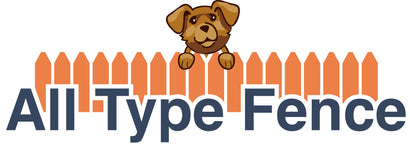Serving Douglassville, King of Prussia & beyond since 1953
Serving Douglassville, King of Prussia & beyond since 1953
Residential
Service & Install
About

Fencing an Athletic Field
When it comes to building fences for athletic areas, there is a different standard in durability and function than regular fences. If you are thinking about installing the fence yourself, consider the purpose of the fence. It may be best to hire a contractor for this project.
What will be the main function of the fence? Are you going to be using it to enclose a field? Is its purpose to be used as a backstop?
Different types of athletic field fence need different gauges of wiring. A backstop fence would use a much thicker gauged wire than a basic outfield homerun fence. Larger gauge wire takes longer to wear down and will have a better chance of standing the test of time. A homerun fence sees little wear and is more of an enclosure. This type of fence does not require as heavy of a gauge of wire.
There are also some visual options that can be applied to sporting fences. If the fence is going to be used an enclosure on your personal property, consider using a vinyl coated chain link fence rather than a standard galvanized chain link. A vinyl coated chain link fence will have a cleaner and more professional look which may integrate better with the outdoor spaces of your home.
If your fence will be installed in an area that is subject to wet or moist conditions you may need a fence with a protective coating. Sports field fences are often subject to sprinkler systems, so fences for athletic fields should have a protective coating to prevent corrosion from frequent water exposure.
Chain link fences can be coated with a protective coating prior to being installed. Purchasing a chain link fence with a protective coating will save you money and repairs/replacement over the long term.
We are experienced installers of both residential and commercial athletic field fences. Contact us today for more information and for a free estimate.
What will be the main function of the fence? Are you going to be using it to enclose a field? Is its purpose to be used as a backstop?
Different types of athletic field fence need different gauges of wiring. A backstop fence would use a much thicker gauged wire than a basic outfield homerun fence. Larger gauge wire takes longer to wear down and will have a better chance of standing the test of time. A homerun fence sees little wear and is more of an enclosure. This type of fence does not require as heavy of a gauge of wire.
There are also some visual options that can be applied to sporting fences. If the fence is going to be used an enclosure on your personal property, consider using a vinyl coated chain link fence rather than a standard galvanized chain link. A vinyl coated chain link fence will have a cleaner and more professional look which may integrate better with the outdoor spaces of your home.
If your fence will be installed in an area that is subject to wet or moist conditions you may need a fence with a protective coating. Sports field fences are often subject to sprinkler systems, so fences for athletic fields should have a protective coating to prevent corrosion from frequent water exposure.
Chain link fences can be coated with a protective coating prior to being installed. Purchasing a chain link fence with a protective coating will save you money and repairs/replacement over the long term.
We are experienced installers of both residential and commercial athletic field fences. Contact us today for more information and for a free estimate.
Also in News

New Year, New Projects!
Contact us today to take the first step in reaching your New Year's goals for your home at https://all-typefence.com/pages/request-a-quote!

Holiday Fence Inspo
"It’s a beaut, Clark!" Now we all know Clark Griswold had his vision of what he wanted his house to look like for the holidays, so what about your fence?
Subscribe
Sign up to get the latest on sales, new releases and more …















